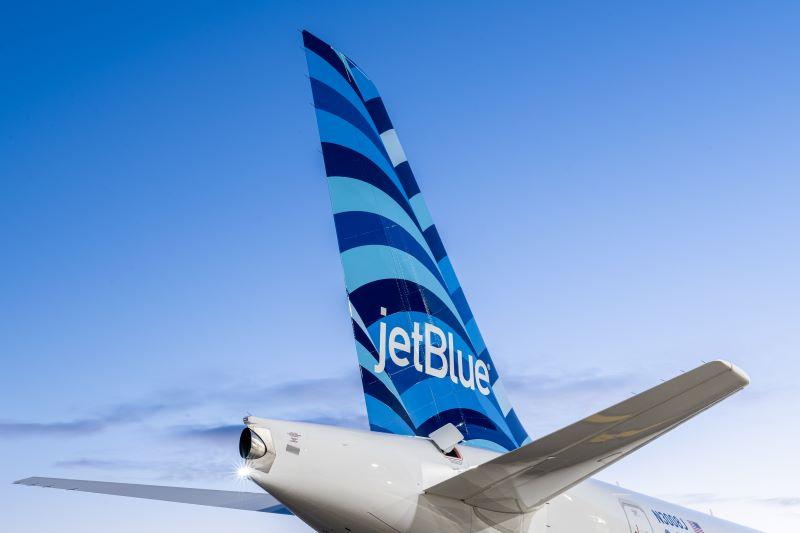Hayes Says JetBlue Will ‘Go To Court’ If Spirit Merger Not Approved

JetBlue Airways CEO Robin Hayes says the company is confident in its position and prepared to fight for its proposed merger with Spirit Airlines if an unfavorable ruling is handed down by the U.S. Justice Department (DOJ).
“We’re going to go to court,” JetBlue CEO Robin Hayes said when asked what the airline’s reaction would be if the DOJ did not approve the move. “The law hasn’t changed; the facts are on our side. Where we agree with the DOJ is that there has been a lot of consolidation and there is a limited amount of competition in many places. But how can you have a situation where four airlines have 80% between them and the rest of us have 20% between them?”
JetBlue in July announced its $3.8 billion deal to acquire ULCC Spirit and has been awaiting regulatory approval, a process Hayes acknowledged was “complex.” The DOJ decision may come as soon as early March.
Speaking to David Rubenstein at a Feb. 21 event hosted by The Economic Club of Washington, D.C. Hayes said, “We’ve been working on this now for several months and honestly we hope to hear soon what’s going to happen next, whether we are going to be able to proceed with this, with regulatory approval or whether we’re going to get sued.”
He added, “A bigger JetBlue, taking the best of JetBlue with the best of Spirit, will allow this airline to grow to 8-9% ... we’re going to make the industry much more competitive.” He later noted, in response to a query on the growth of Southwest Airlines, “They grew like we did, organically for many years, but then they acquired AirTran, too.”
The wide-ranging interview also touched on the U.S. air traffic control safety system, which Hayes called safe but in need of modernization; the carrier’s new flights to London which he projected to perform well in the summer months; and technological upgrades to baggage tracking.
“We do have lost bags and it’s about investing in technology,” Hayes said. “It’s about making sure our procedures are good to try and minimize that ... one of the challenges now is people have these AirTags in the bags. So, sometimes they know better than we do where the bag is. We’ve got to figure out a way of tapping into that technology.”
Looking ahead, Hayes said he expects it will take another year or so for capacity to normalize and catch up with demand.
“We were definitely seeing momentum in the back half of the last decade; airlines were sort of hitting a groove,” Hayes said. “They were making money around the world at a net level, and then of course, COVID came. The analogy I give is you spend 20-30 years pushing the car up the hill, just trying to get it a bit higher, a bit higher. And then a pandemic happens, and you let go of the car and it goes right back down to where it came. And so, we’re all having to rebuild our businesses again.”



